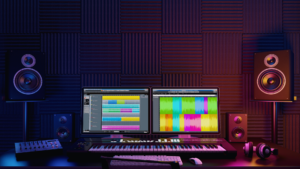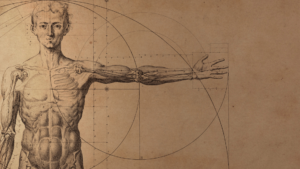
Music serves as a profound outlet for self-expression, enabling individuals to communicate emotions that words alone often fail to convey. This unique ability to articulate feelings and experiences through melody and rhythm makes music the ultimate form of self-expression. Whether through songwriting, performing, or simply listening, each interaction with music allows for a personal connection that resonates deeply within.
Throughout history, music has been a universal language, transcending cultural and linguistic barriers. It provides a canvas for people to share their stories, struggles, and triumphs in ways that foster understanding and empathy. By tapping into the raw power of sound, individuals can reflect their identities while connecting with others on a significant emotional level.
The act of creating or engaging with music can bring clarity to complex emotions and promote healing. For many, it becomes an essential tool in navigating life’s challenges and celebrating its joys, reinforcing music’s status as an unparalleled medium for personal expression.
The Nature of Music as a Form of Self-Expression
Music serves as a profound medium for individuals to convey their emotions and thoughts. Through various genres and the act of playing instruments or composing, music allows for nuanced artistic expression that transcends typical communication methods.
Understanding Emotional Expression Through Music
Music has a unique ability to evoke and convey emotions. It taps into human experiences, allowing listeners and creators to express feelings ranging from joy to sorrow. The use of tempo, melody, and harmony can change the mood of a piece dramatically.
For example, a slow, minor key might express melancholy, while an upbeat, major key can evoke happiness. This emotional range fosters a deep connection between the creator and the audience. Different musical elements serve as tools to encapsulate specific feelings, making music a powerful mode of self-expression.
The Role of Genres in Artistic Expression
Genres categorize music, shaping the way emotions and messages are delivered. From classical to hip-hop, each genre has its own conventions and aesthetic that influence artistic expression.
For instance, folk music often draws on personal narratives and cultural histories, while electronic music might focus on innovative sounds and atmospheres. Understanding these genres allows artists to select the right tools for their message, enhancing their self-expression.
The boundaries of genres also blur, giving artists the freedom to experiment and combine styles. This fusion can result in fresh, unique sounds that challenge norms and reflect personal identity.
How Composing and Playing Instruments Facilitate Expression
Composing music offers artists a direct avenue for self-expression. Through the creative process, they can construct melodies, harmonies, and rhythms that reflect their inner thoughts.
Playing instruments also provides an immediate, tactile way to express emotions. Musicians often use dynamics and techniques to infuse their performance with personal flair. The act of creating and performing music can be cathartic, enabling them to navigate complex feelings and share their experiences with others.
This combination of composing and performing allows for a multifaceted expression of identity and emotion, solidifying music’s status as an ultimate form of self-expression.
The Psychological Impact of Music on Well-Being
Music significantly influences mental health and offers avenues for emotional expression. Its effects range from improving mood to serving as a vital therapeutic tool for individuals navigating emotional challenges.
Music’s Influence on Mental Health
Studies show that music can trigger the release of neurotransmitters such as dopamine and serotonin, which enhance mood and reduce feelings of anxiety and depression. Listening to preferred music can elevate emotional states and foster feelings of happiness.
Key Benefits:
- Mood Regulation: Uplifting melodies can transition someone from a negative state to a more positive mindset.
- Stress Relief: Soothing music can lower cortisol levels, which decreases stress.
- Social Connection: Engaging in music, whether through listening, performing, or sharing, can strengthen social bonds, contributing to overall well-being.
Music as a Therapeutic Tool for Emotional Expression
Music therapy has gained recognition as a powerful method for facilitating emotional expression. This approach helps individuals articulate feelings they might struggle to convey verbally. It often serves as a bridge to better self-awareness.
Therapeutic Uses:
- Creative Outlet: Composing or playing music allows individuals to express complex emotions safely.
- Coping Mechanism: Music can provide comfort during difficult times, allowing for a healthy outlet for grief or trauma.
- Personal Reflection: Listening to specific genres or songs often aids in introspection, helping individuals understand their emotions more deeply.
Cultural and Social Dimensions of Musical Expression
Music serves as a powerful lens through which one can explore societal values and cultural perspectives. It acts as a mirror, reflecting various aspects of life while also influencing them in return.
The Relationship Between Music and Society
Music and society share a dynamic relationship. Music communicates cultural narratives and social issues, connecting individuals through shared experiences. For instance, protest songs often emerge in response to political unrest, encapsulating collective sentiments.
Additionally, music can shape identities. Genres like rap often express the struggles and triumphs of marginalized communities. The social context in which music is created influences its themes, leading to rich dialogues about identity, race, and socioeconomic status.
This reciprocal relationship offers insights into the societal changes occurring over time, demonstrating how music can inspire movements and foster unity.
Diverse Forms of Expression: Rap, Jazz, Rock, and Pop
Each musical genre provides a distinct avenue for expression. Rap often tackles important social issues, giving voice to the disenfranchised. It combines powerful lyrics with rhythmic complexity, allowing artists to convey personal stories while engaging listeners.
Jazz, rooted in African American history, emphasizes improvisation, blending various influences. This genre showcases individual creativity and reflects the cultural tapestry of society. Its evolution mirrors the social changes that occurred in the 20th century.
Rock music emerged as a societal commentary, often challenging norms and voicing rebellion. It resonates with youth culture, acting as an outlet for self-expression and collective identity.
Pop music, accessible and widespread, often mirrors contemporary societal trends. It connects different demographics, offering catchy melodies that resonate with a broad audience. Through diverse genres, music serves as an essential component of cultural expression.











